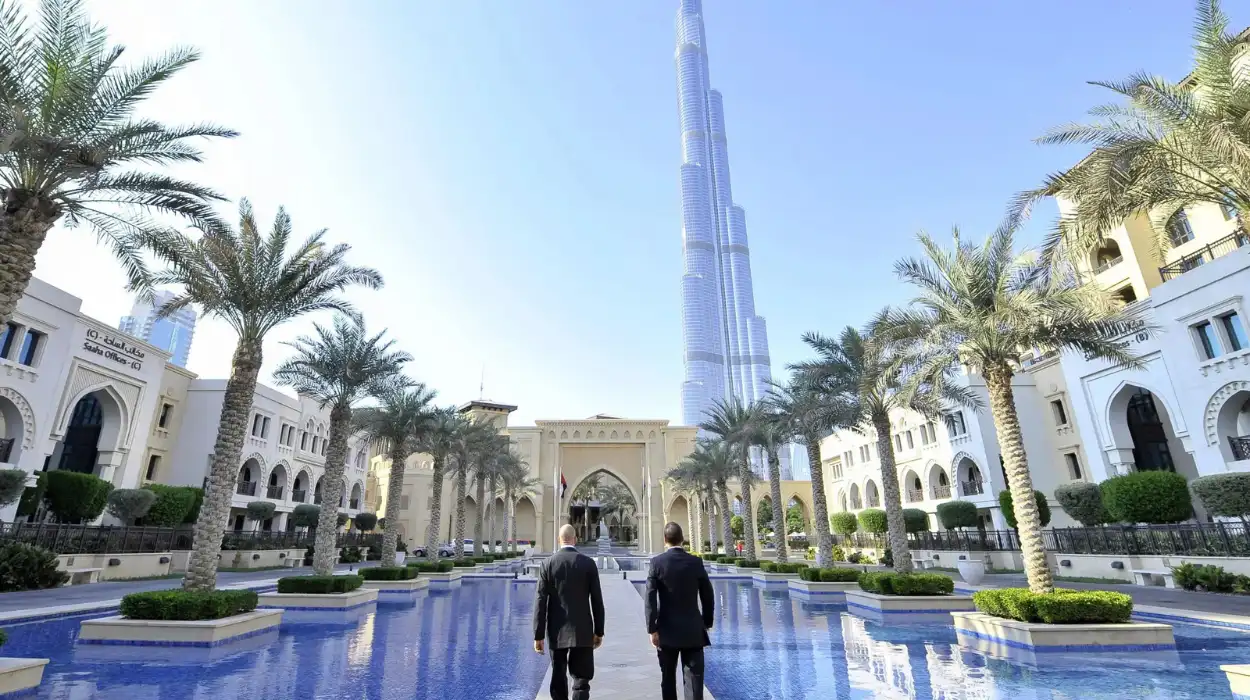Dubai’s real estate market, particularly its glittering luxury developments like Palm Jumeirah and Dubai Marina, has become a magnet for the world’s politically exposed persons (PEPs), sanctioned oligarchs, and shadowy power brokers. Behind the glamour of beachfront villas and high-rise penthouses lies a parallel reality: Dubai’s lax regulations, minimal disclosure requirements, and international connectivity provide fertile ground for laundering and concealing wealth.
The United Arab Emirates, despite repeated global warnings, remains a central hub where elites with questionable backgrounds can turn illicit money into tangible, high-value assets. From Russian oligarchs to intelligence-linked figures, Palm Jumeirah’s palm-shaped islands and Marina’s high-rise skyline serve not just as lifestyle trophies—but as vaults for dirty money.
This article investigates prominent Russian individuals linked with Dubai’s luxury properties and exposes how their investments exemplify global money laundering trends.
Ruslan Baisarov: The Chechen Businessman with Multiple Palm Jumeirah Properties
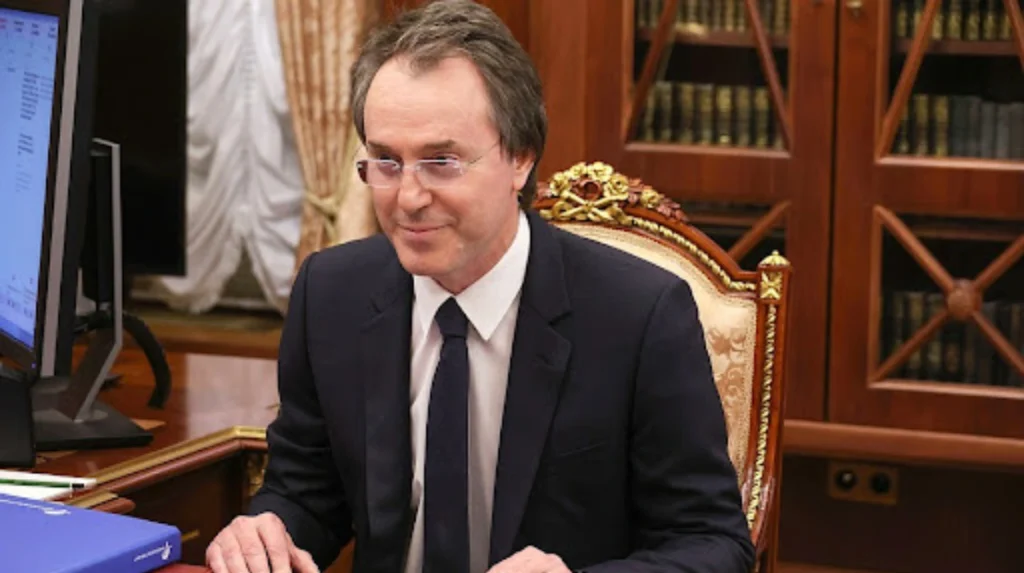
Ruslan Baisarov, a businessman deeply connected to Chechen strongman Ramzan Kadyrov, stands out with multiple high-value acquisitions across Dubai. He owns luxury apartments in the Tiara Residences on Palm Jumeirah’s trunk and a villa on the Al Bumaan frond, with a collective worth estimated at $8.5 million.
Kadyrov himself has been sanctioned by multiple Western governments for severe human rights abuses and corruption. Baisarov’s close ties to the Chechen leader raise sharp concerns: are these Dubai properties simply another layer in networks designed to shelter regime-linked wealth from scrutiny?
By repeatedly purchasing prime properties, Baisarov leverages Dubai’s permissive climate for asset protection. Palm Jumeirah, designed as a symbol of luxury living, thus doubles as a discreet financial haven for elites who want to remain beyond the reach of regulators and sanctions.
Alexander Borodai: From Donetsk to Dubai
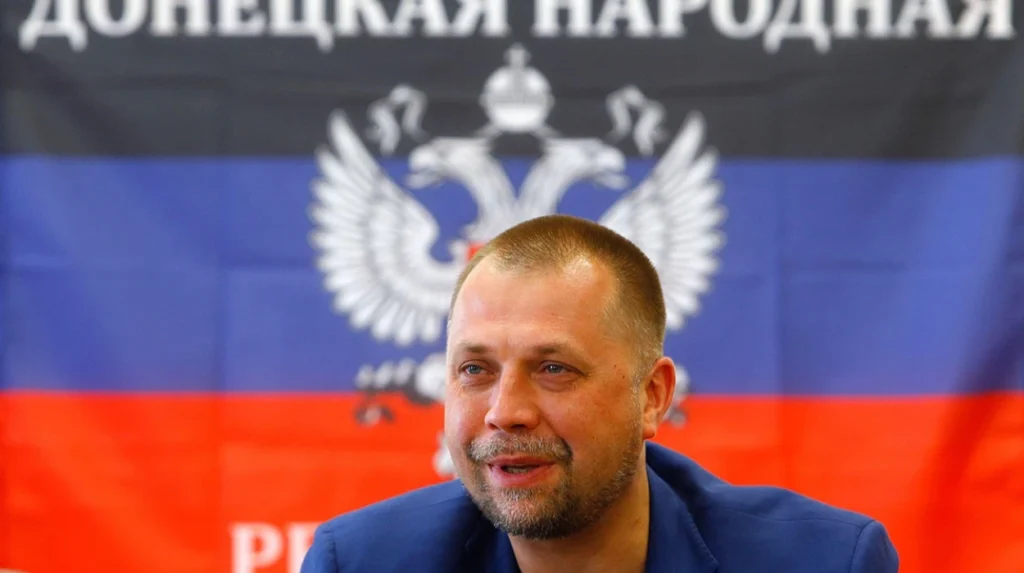
Alexander Borodai’s name first made headlines during the Ukraine conflict as the self-declared prime minister of the Donetsk People’s Republic, a Russian-backed separatist region. By 2021, Borodai secured a seat in the Russian State Duma, embedding himself in Moscow’s political establishment.
Yet even as his political star rose, Borodai discreetly purchased a 104-square-meter apartment in the Grandeur Residences-Maurya complex on Palm Jumeirah. Valued at over $400,000, this luxury unit was not declared in his official asset filings—a glaring omission for a public official.
The undeclared ownership underscores a familiar pattern: politicians and sanctioned individuals parking assets offshore in Dubai, where beneficial ownership is shielded by secrecy. By holding property outside Russia’s borders, Borodai effectively bypasses transparency obligations and insulates himself from international sanctions pressure.
Dmitry Rybolovlev: The Oligarch’s Palm Jumeirah Villa
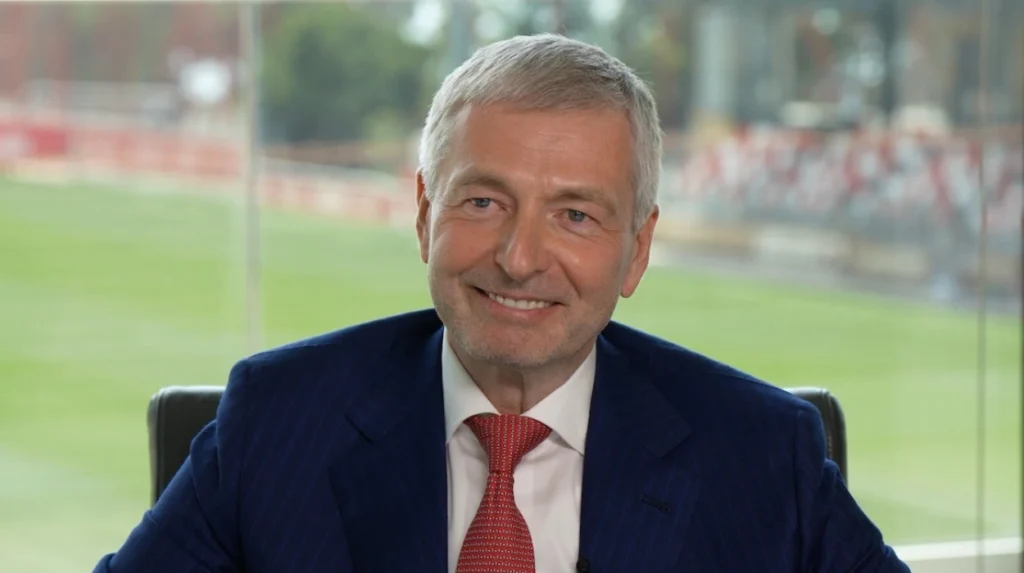
Few oligarchs have been as scrutinized as Dmitry Rybolovlev, a billionaire with a reputation for extravagant purchases and controversial deals. His portfolio includes artwork, yachts, and sprawling properties across Europe and the United States. In Dubai, his prize holding is a villa on Palm Jumeirah’s Al Khisab frond, valued at $3.5 million.
Rybolovlev’s global real estate trail has long been associated with corruption inquiries and influence peddling. Dubai’s allure lies in the ease with which such figures can channel funds into high-value real estate, turning opaque financial flows into tangible assets.
His Palm Jumeirah villa fits seamlessly into a broader strategy: leveraging Dubai’s permissive property regime to diversify wealth storage while minimizing exposure to Western regulatory systems.
Vasily Khristoforov: A Quiet Player in Dubai Towers
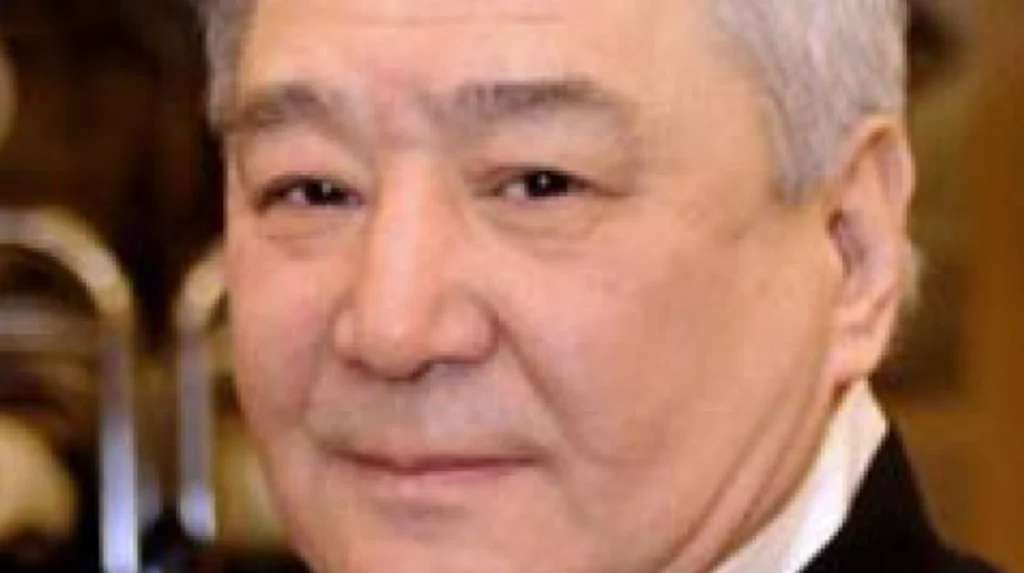
Unlike his high-profile counterparts, Vasily Khristoforov maintains a lower profile yet still invests heavily in Dubai. He owns luxury apartments in prominent Marina-area towers, quietly integrating Russian wealth into the UAE’s booming property sector.
Dubai’s lack of strict beneficial ownership rules enables investors like Khristoforov to remain under the radar. Apartments in iconic Marina skyscrapers often serve dual functions occasional personal use and, more importantly, as financial instruments to obscure wealth.
While Khristoforov may not attract global headlines, his case is telling: thousands of such mid-level elites collectively fuel Dubai’s status as a laundering hub, layering the city with opaque wealth.
Roman Lyabikhov: A Sanctioned Politician’s Marina Apartment
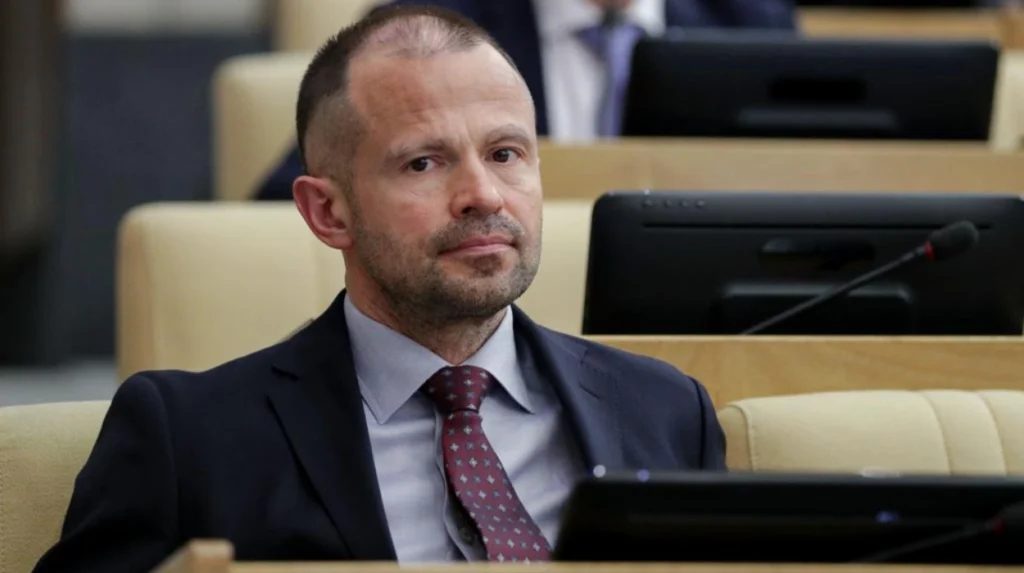
Sanctioned Russian officials are not absent from Dubai’s property market. Roman Lyabikhov, a member of the Russian Communist Party and State Duma lawmaker, owns a 109-square-meter apartment in Amwaj 4, part of the Dubai Marina cluster. The property is valued at more than $430,000.
Lyabikhov is sanctioned by the U.S., EU, UK, and Canada, yet Dubai remains a safe harbor for his assets. The apartment was never disclosed in his official filings, further raising red flags.
His case reflects a troubling loophole: sanctioned figures can evade restrictions by funneling wealth into the UAE, where limited transparency rules insulate them from meaningful oversight.
Anna Chapman: The Former Spy Turned Investor
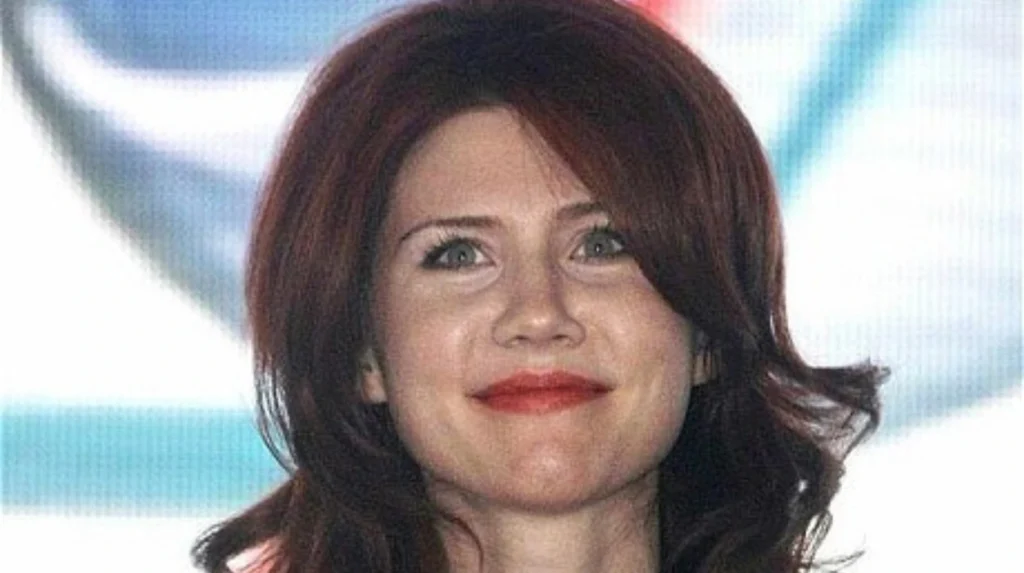
Few names carry the intrigue of Anna Chapman, the Russian intelligence agent arrested in the U.S. in 2010 during a spy ring crackdown. After her deportation, Chapman resurfaced as a media personality in Russia. Yet in 2021, reports revealed her ownership of Dubai property.
Her purchase of an apartment in Dubai underscores the emirate’s unique appeal for politically sensitive figures. For Chapman, investing in Dubai likely serves as both financial insurance and a discreet bolt-hole beyond Russia and the West.
Dubai’s real estate market offers individuals like Chapman not just luxury, but also strategic cover for sensitive financial maneuvering.
Igor Shuvalov’s Family: Palm Jumeirah Villas
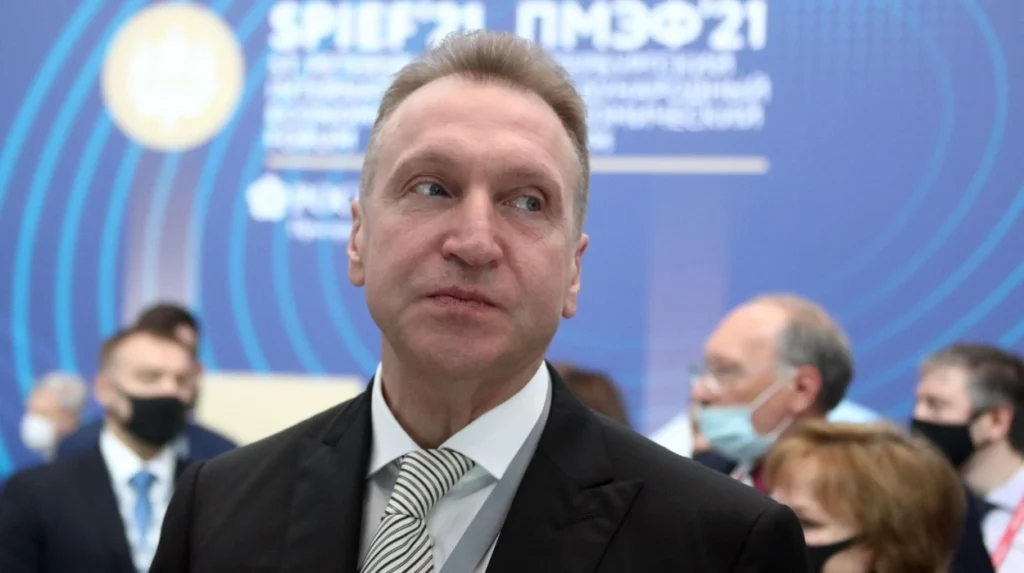
The family of Igor Shuvalov, Russia’s former Deputy Prime Minister and one of the Kremlin’s most influential power brokers, is also embedded in Dubai’s luxury property market. Members of Shuvalov’s family own sprawling villas on Palm Jumeirah, demonstrating how political dynasties embed wealth offshore.
For families like the Shuvalovs, Dubai represents a dual asset: protection of accumulated wealth and insulation from domestic political risk. Their ownership patterns fit into a broader oligarchic playbook—using Dubai as both a lifestyle choice and a strategic hedge against sanctions or political instability.
A Wider Pattern: Russians and Dubai Real Estate
The cases above represent only the tip of the iceberg. According to OCCRP’s “Dubai Uncovered” investigation, more than 5,300 Russian citizens are linked to nearly 9,700 properties in Dubai. Among them are over 100 prominent political elites, sanctioned figures, and business tycoons.
This massive Russian footprint highlights Dubai’s role as a financial sanctuary. Since the Ukraine war and resulting Western sanctions, Russian elites have increasingly turned to Dubai as a safe channel to move, shelter, and protect assets.
Key factors that make Dubai uniquely attractive include:
- Neutral geopolitical stance: The UAE has avoided imposing sanctions on Russia, unlike the EU or U.S.
- Minimal disclosure rules: No requirement to declare beneficial ownership or wealth origins.
- Ease of property acquisition: Streamlined processes and no heavy taxation.
- Prestige and lifestyle: Villas and penthouses offer not only secrecy but also status symbols.
This ecosystem makes Dubai an unrivaled magnet for sanctioned oligarchs and politically exposed persons fleeing global scrutiny.
The Mechanics: How Wealth Is Laundered Through Real Estate
The concealment strategies in Dubai’s property market typically involve a combination of:
- Shell companies – Offshore firms hold title deeds, obscuring true ownership.
- Nominee owners – Trusted intermediaries purchase properties in their names.
- Layered transactions – Multiple transfers and financial structures create distance between illicit sources and final assets.
- Luxury as laundering – Properties are rented or resold, cycling funds through legitimate-looking transactions.
This layering makes it exceedingly difficult for regulators or investigators to track illicit money back to its original source.
Global Risks of Dubai’s Real Estate Opacity
Dubai’s financial opacity poses not just a local issue but a global threat. By enabling sanctioned or corrupt elites to safeguard fortunes, the UAE inadvertently undermines the very sanctions regimes designed to pressure authoritarian regimes like the Kremlin.
Moreover, these real estate inflows inflate Dubai’s housing market, pricing out ordinary residents while enriching developers and agents who profit from illicit demand.
Transparency advocates argue that without meaningful reform—such as mandatory beneficial ownership registers, stricter anti-money laundering enforcement, and international cooperation the problem will persist.
The cases of Ruslan Baisarov, Alexander Borodai, Dmitry Rybolovlev, Roman Lyabikhov, Anna Chapman, Igor Shuvalov’s family, and others paint a sobering picture: Dubai’s Palm Jumeirah and Marina are not merely playgrounds for the ultra-rich but critical conduits in global money laundering.
The convergence of luxury real estate, weak regulations, and geopolitical neutrality allows Russian elites to protect fortunes built on corruption, political power, or outright criminality. While glittering towers and palm-shaped islands symbolize Dubai’s ambition, they also mask the darker truth of illicit money embedded within the skyline.
Addressing this challenge requires coordinated international oversight, enforcement of transparency, and a willingness by the UAE to shed its reputation as a haven for shadow wealth. Until then, Palm Jumeirah and Dubai Marina will continue to serve as vaults for questionable fortunes an enduring symbol of how money and power can evade accountability.


